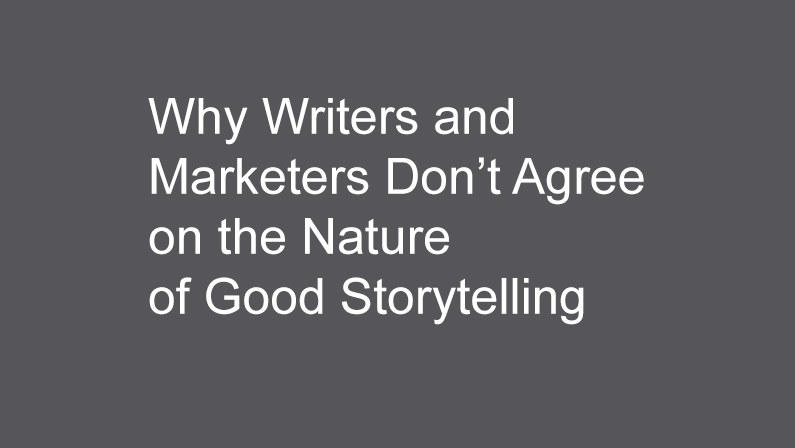An acquaintance of mine left a lucrative career in marketing and sales to start a bakery. Her signature item is a carrot cake. Like a good marketer, she researched the competition before launching her business. “What I learned is that people have different interpretations of ‘carrot cake,’” she told me.
I feel the same about the term ‘storytelling.’
Marketing and communications professionals talk a lot about the importance of storytelling. I went to a conference a few years ago for nonprofit marketing professionals, and an entire educational track was devoted to the topic.
What I can tell you is that storytelling means something different to marketers than it means to writers. The implications are significant for organizations trying to incorporate storytelling into their strategies.
The Hero Story as an Example
Just as good marketers always think of the customer’s needs first, good writers always think of the reader’s needs first.
For some reason, marketers forget this when it comes to their version of storytelling. They think of story as something that should support brand identity, first and foremost. In keeping with this objective, marketers tend to favor stories with a defined hero, a clear conflict and a positive resolution.
An example would be an impact story, where the hero is a donor who addressed a conflict with a substantial gift, which led to the fulfillment of a need.
Stories like these are self-serving. They lack authenticity in a marketplace where authenticity is more valuable than ever.
In contrast, imagine if such a story was written for a newstand magazine. The donor would be represented with good and bad characteristics. The conflict would be complicated by mitigating circumstances. And even if the resolution is positive, the path to success would filled with ambiguity and uncertainty. The reader would be emotionally satisfied.
Imagine if your storytelling was that compelling. It’s not that far out of reach. MW

